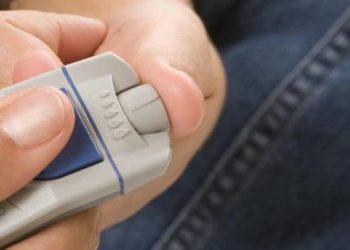Maintenance opioids in drug users linked with lower rate of hepatitis C infection
1. In young adults, treatment with maintenance opioid agonist therapy (methadone or buprenorphine) was associated with a 69% decrease in incident hepatitis C virus (HCV) infection compared to no treatment
2. The reduction in HCV incidence may be due in part to a decrease in frequency of injection.
Evidence Rating Level: 1 (Excellent)
Study Rundown: Intravenous drug use (IVDU) is the most common risk factor for hepatitis C virus (HCV) infection. Incidence rates of HCV are especially high among new users, a majority of which are young adults. Previous studies have shown reduced HCV infection rates in association with opioid agonist therapy. However these studies focused on older adults and prisoners, and were also done before the advent of buprenorphine. This study aimed to examine the relationship between opioid agonist therapy and HCV infection in young adult injection drug users. There was a significant decrease of 69% in HCV infection incidence in adults who reported maintenance opioid agonist therapy in the past 3 months compared to no treatment.
The results of this study suggest that being on maintenance opioid agonist therapy reduces incidence of HCV infection in part by decreasing the frequency of injection and thus decreasing the exposure in which one would acquire these blood-borne pathogens. The strengths of this study include it being the first to examine opioid agonist therapy in young adults, as well as thorough and accurate HCV infection ascertainment. Limitations include using self-report for opioid agonist therapy ascertainment, being unable to analyze methadone and buprenorphine separately due to low numbers and also having only 56% of all eligible participants actually be included in the final cohort.
Click to read the study, published today in JAMA Internal Medicine
Relevant Reading: A systematic review and meta-analysis of interventions to prevent hepatitis C virus infection in people who inject drugs
In-Depth [prospective cohort]: This prospective cohort study used data from the UFO study, which included young adults (<30 years old) who were IV drug users. Of the 992 eligible adults, 721 were enrolled into the study. Only participants that attended ≥ 2 follow-up visits were included in the final analysis, resulting in a cohort of 552 adults. Follow-up was done quarterly with behavior questionnaires and HCV testing. Opioid agonist use was categorized into no treatment, non-opioid agonist forms of treatment, opioid agonist detoxification and maintenance opioid agonist therapy. The primary outcome was association between opioid agonist therapy use and incident HCV infection. Cumulative incidence rates per person-year of observation and 95% confidence intervals for the rates were calculated.
171 new cases of HCV infection occurred during the study period, resulting in an incident rate of 25.1 per 100 person-years. Participants on maintenance opioid agonist therapy were less likely to become infected with HCV (rate ratio 0.31, 95% CI 0.14-0.65, p=0.001) compared to no treatment. This relationship was maintained when adjusted for age, sex, ethnicity, number of years of IV drug use, recent incarceration and homelessness. However, when adjusted for frequency of injections, this relationship became non-significant (adjusted HR 0.59, 95% CI 0.27-1.26). Participants that took part in opioid agonist detoxification or non-opioid agonist therapies did not show statistically significant reductions in HCV infection incidence.
More from this author: Overall US diet quality improved from 1999 to 2010, Arterial catheter monitoring in ICU not associated with mortality benefit, Effectiveness of medical device postapproval surveillance unclear, Inconsistent quality of evidence for biomarker use on FDA drug labels
Image: PD
©2012-2014 2minutemedicine.com. All rights reserved. No works may be reproduced without expressed written consent from 2minutemedicine.com. Disclaimer: We present factual information directly from peer reviewed medical journals. No post should be construed as medical advice and is not intended as such by the authors, editors, staff or by 2minutemedicine.com. PLEASE SEE A HEALTHCARE PROVIDER IN YOUR AREA IF YOU SEEK MEDICAL ADVICE OF ANY SORT.






